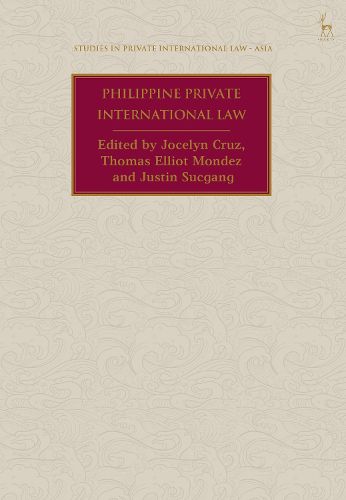Readings Newsletter
Become a Readings Member to make your shopping experience even easier.
Sign in or sign up for free!
You’re not far away from qualifying for FREE standard shipping within Australia
You’ve qualified for FREE standard shipping within Australia
The cart is loading…






The first, authoritative reference on Philippine private international law in English.
It covers all facets of Philippine private international law and its inevitable intersection with family and succession issues, commercial matters, intellectual property, competition, cross-border insolvency, and environmental disputes.
This book goes beyond a systematic presentation of the traditional private international law issues on jurisdiction, applicable law, and enforcement mechanisms. Employing a problem-centered approach, the chapters also look into conflict of law questions arising in arbitration and assess the Philippines' involvement in the harmonisation of private international law globally and regionally within ASEAN.
With the Philippine legal system uniquely blending common and civil law traditions, the book presents Philippine private international law through the perspectives and analytical techniques characteristic of both traditions. In doing so, the book provides readers worldwide with a more profound and comprehensive understanding of private international law in the Philippines.
$9.00 standard shipping within Australia
FREE standard shipping within Australia for orders over $100.00
Express & International shipping calculated at checkout
The first, authoritative reference on Philippine private international law in English.
It covers all facets of Philippine private international law and its inevitable intersection with family and succession issues, commercial matters, intellectual property, competition, cross-border insolvency, and environmental disputes.
This book goes beyond a systematic presentation of the traditional private international law issues on jurisdiction, applicable law, and enforcement mechanisms. Employing a problem-centered approach, the chapters also look into conflict of law questions arising in arbitration and assess the Philippines' involvement in the harmonisation of private international law globally and regionally within ASEAN.
With the Philippine legal system uniquely blending common and civil law traditions, the book presents Philippine private international law through the perspectives and analytical techniques characteristic of both traditions. In doing so, the book provides readers worldwide with a more profound and comprehensive understanding of private international law in the Philippines.